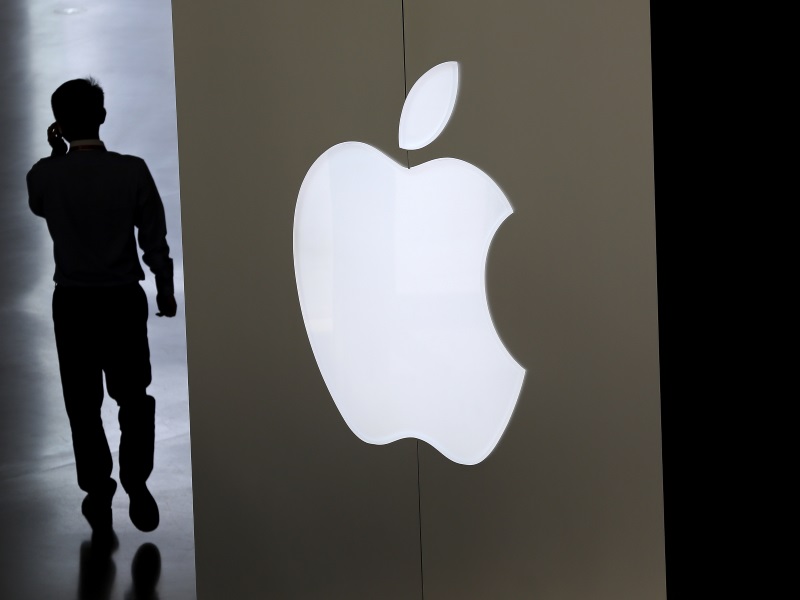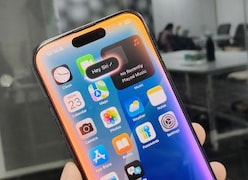- Home
- Mobiles
- Mobiles News
- US DoJ Seeks to Force Apple to Extract Data From Dozen Other iPhones: Report
US DoJ Seeks to Force Apple to Extract Data From Dozen Other iPhones: Report

This move comes on the heels of the San Bernardino, California, shooting case.
The other phones, which were seized in a variety of criminal investigations, are involved in cases where prosecutors are compelling the company to help them bypass the passcode security feature of phones that may hold evidence, the Journal added.
However, the details of these dozen cases are not yet public and they do not tend to involve any terrorism charges, the Journal said on Monday.
The dozen or so cases are also distinct from San Bernardino in that many of them involve phones using an older Apple operating system, which has fewer security barriers to surmount, the Journal added.
The DOJ filed a motion on Friday seeking to compel Apple to comply with a judge's order to unlock the encrypted iPhone belonging to one of the San Bernardino shooters, portraying the tech giant's refusal as a "marketing strategy."
Apple on Monday urged the creation of a government panel on encryption, the latest salvo in a standoff over a locked iPhone linked to the San Bernardino shooting that has escalated into a public relations battle between the technology company and the US Federal Bureau of Investigation.
Apple Chief Executive Tim Cook also sent a letter to employees Monday morning, making clear the company's hardline stance refusing to make software to unlock the phone addresses broader issues, not just a single device linked to a grisly attack.
Apple and the Justice Department could not immediately be reached for comment outside regular business hours.
© Thomson Reuters 2016
Get your daily dose of tech news, reviews, and insights, in under 80 characters on Gadgets 360 Turbo. Connect with fellow tech lovers on our Forum. Follow us on X, Facebook, WhatsApp, Threads and Google News for instant updates. Catch all the action on our YouTube channel.
Related Stories
- Samsung Galaxy Unpacked 2025
- ChatGPT
- Redmi Note 14 Pro+
- iPhone 16
- Apple Vision Pro
- Oneplus 12
- OnePlus Nord CE 3 Lite 5G
- iPhone 13
- Xiaomi 14 Pro
- Oppo Find N3
- Tecno Spark Go (2023)
- Realme V30
- Best Phones Under 25000
- Samsung Galaxy S24 Series
- Cryptocurrency
- iQoo 12
- Samsung Galaxy S24 Ultra
- Giottus
- Samsung Galaxy Z Flip 5
- Apple 'Scary Fast'
- Housefull 5
- GoPro Hero 12 Black Review
- Invincible Season 2
- JioGlass
- HD Ready TV
- Laptop Under 50000
- Smartwatch Under 10000
- Latest Mobile Phones
- Compare Phones
- OPPO A6v 5G
- OPPO A6i+ 5G
- Realme 16 5G
- Redmi Turbo 5
- Redmi Turbo 5 Max
- Moto G77
- Moto G67
- Realme P4 Power 5G
- HP HyperX Omen 15
- Acer Chromebook 311 (2026)
- Lenovo Idea Tab Plus
- Realme Pad 3
- HMD Watch P1
- HMD Watch X1
- Haier H5E Series
- Acerpure Nitro Z Series 100-inch QLED TV
- Asus ROG Ally
- Nintendo Switch Lite
- Haier 1.6 Ton 5 Star Inverter Split AC (HSU19G-MZAID5BN-INV)
- Haier 1.6 Ton 5 Star Inverter Split AC (HSU19G-MZAIM5BN-INV)

















